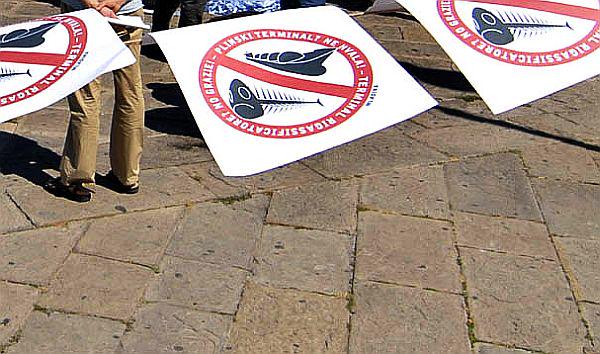
The gas terminal in the Gulf of Trieste should be the thing of the past, but the new location Italy plans for a terminal, instead of Žavlje, might be in the vicinity of Devin, only two kilometres from the Slovenian border.
Last year the European Commission didn't include the terminal at Žavlje into the list of energy project of common European interest; yet a gas terminal project remained on the list, anywhere at the northern part of the Adriatic sea. The new location is at the Lokavec area, on the right bank of the Timava, where the Smart Gas company, under the patronage of the Finnish concern Wärtsilä, plans to build a so-called mini-gasifier for storage, gasification, and distribution of natural gas.
As reported by Erna Strniša for Radio Slovenija, the environmentalists doubt it would be a project of smaller proportions than the one that had been planned for Žavlje. Franc Malečkar from the Alpe-Adria Green organization said that the transport of gas by tankers demands, in the first place, increased security, which would prevent other ships the access to the Ports of Koper and Trieste. "An eventual spillage might cause ignition, explosion, and catastrophic consequences, therefore such ships are regularly escorted by military vessels, and security measures prescribe almost three kilometres of safety distance around them. Which means that while these tankers sail into a port, all the other activities are suspended," he said.
Another environmental problem is pollution of the sea with chlorine water, used for preservation of gas warming, and the planned deepening of the sea: "During deepening of the sea, or when ships sail into port, the silt would raise from the bottom and mercury would pollute the life of the bay. The experts have calculated that fish would contain almost 40 milligrams of mercury per one kilogram of weight."
The intention of Italy has been known since February at least, when the Italian media wrote about it, but the Ministry of Agriculture and Environment say they have not been notified of the project by Italy, and they intend to request a notification. On Wednesday the first public proceeding on this topic took place, and the interested parties can give their comments until September, Erna Strniša reported.
translated by G. K.

































































